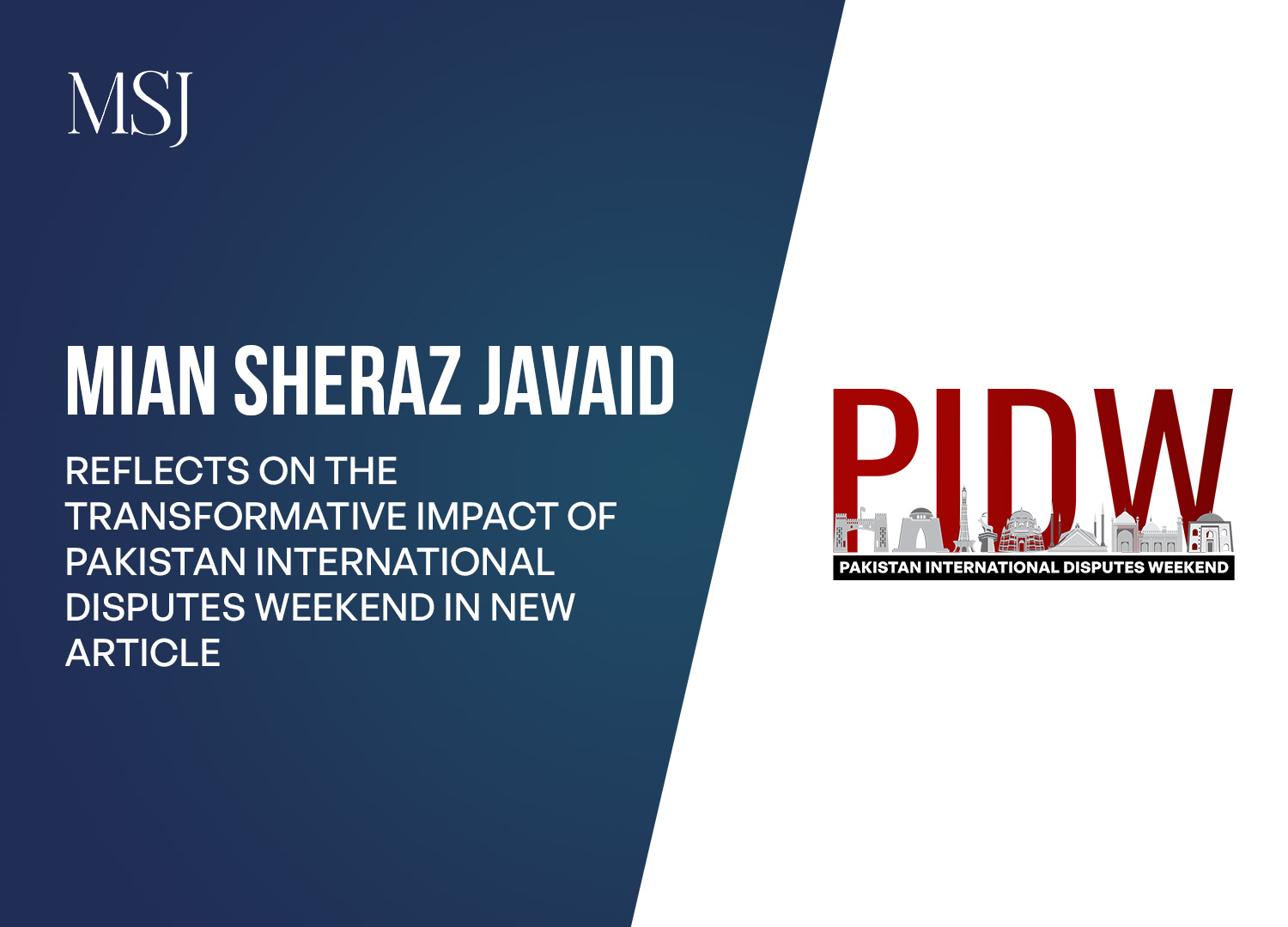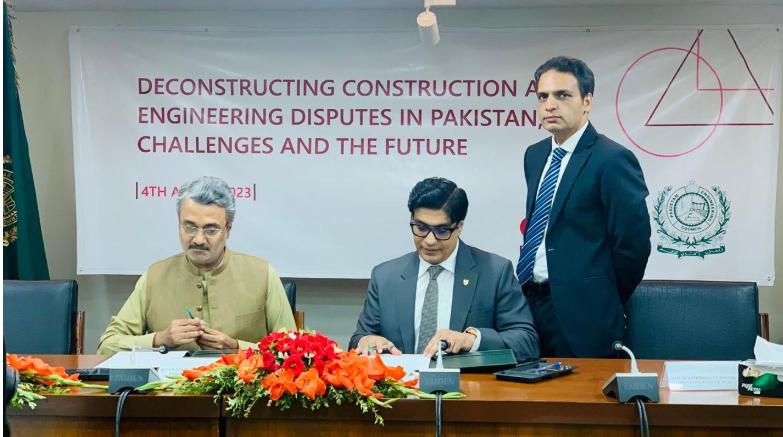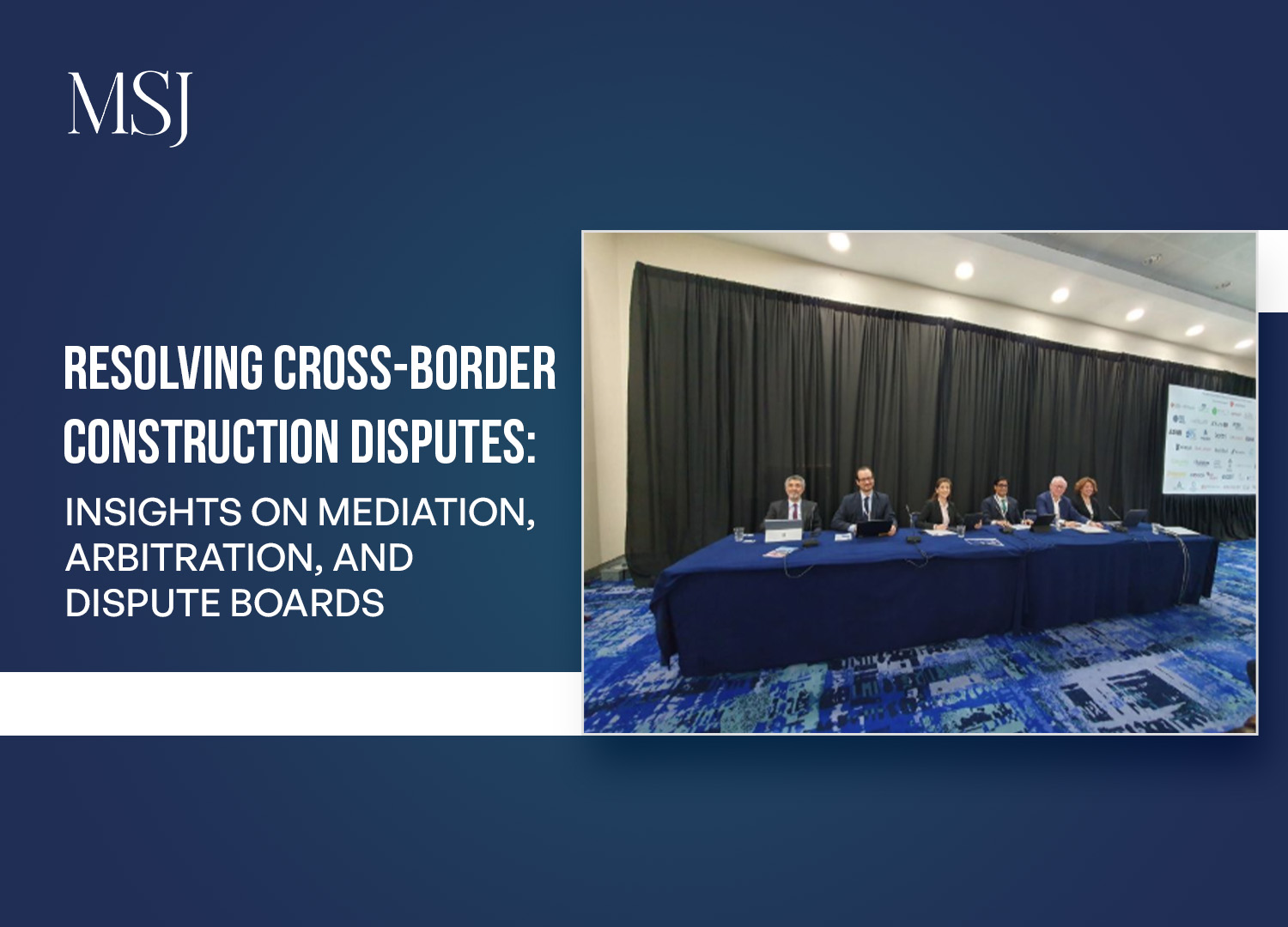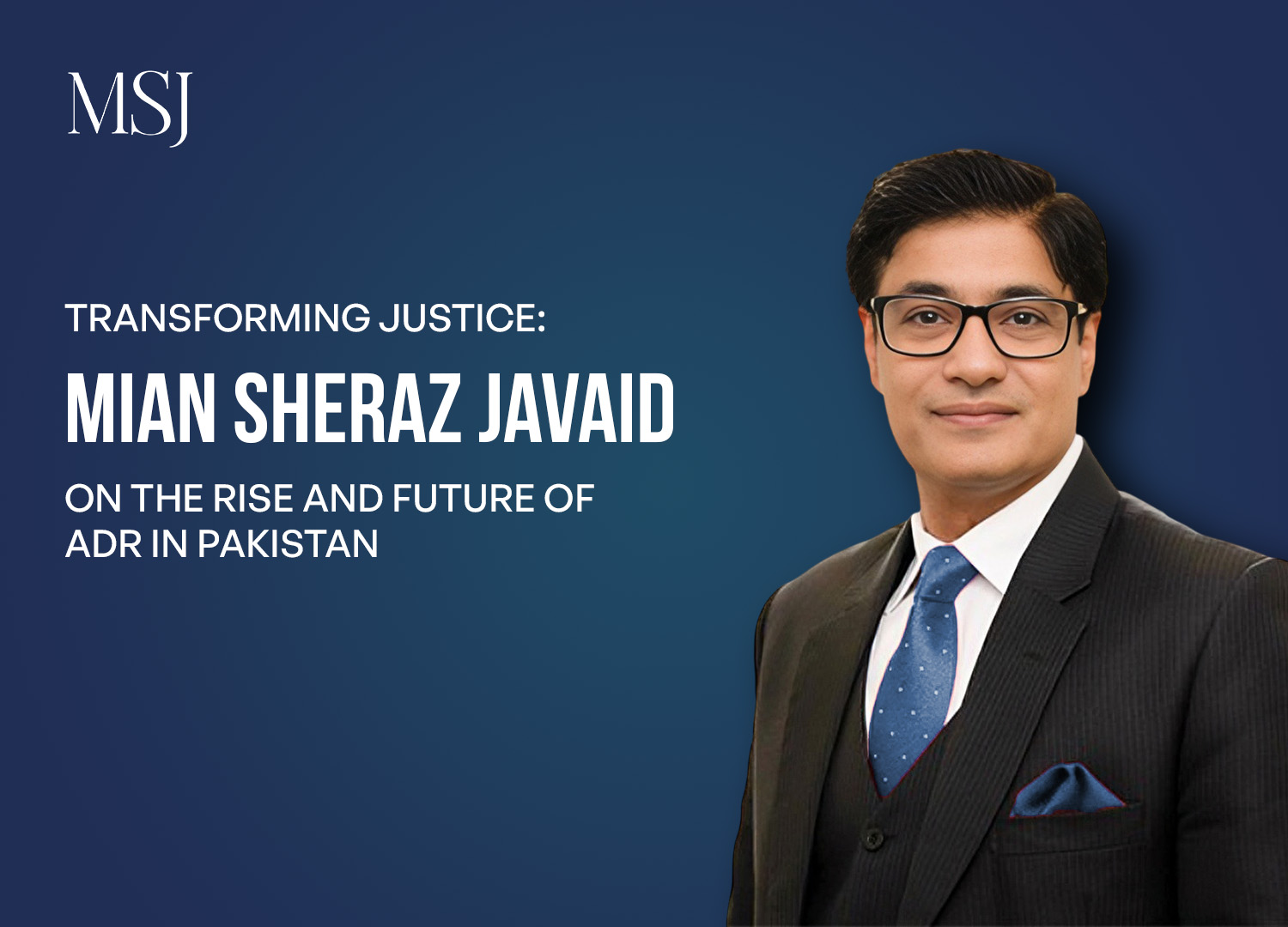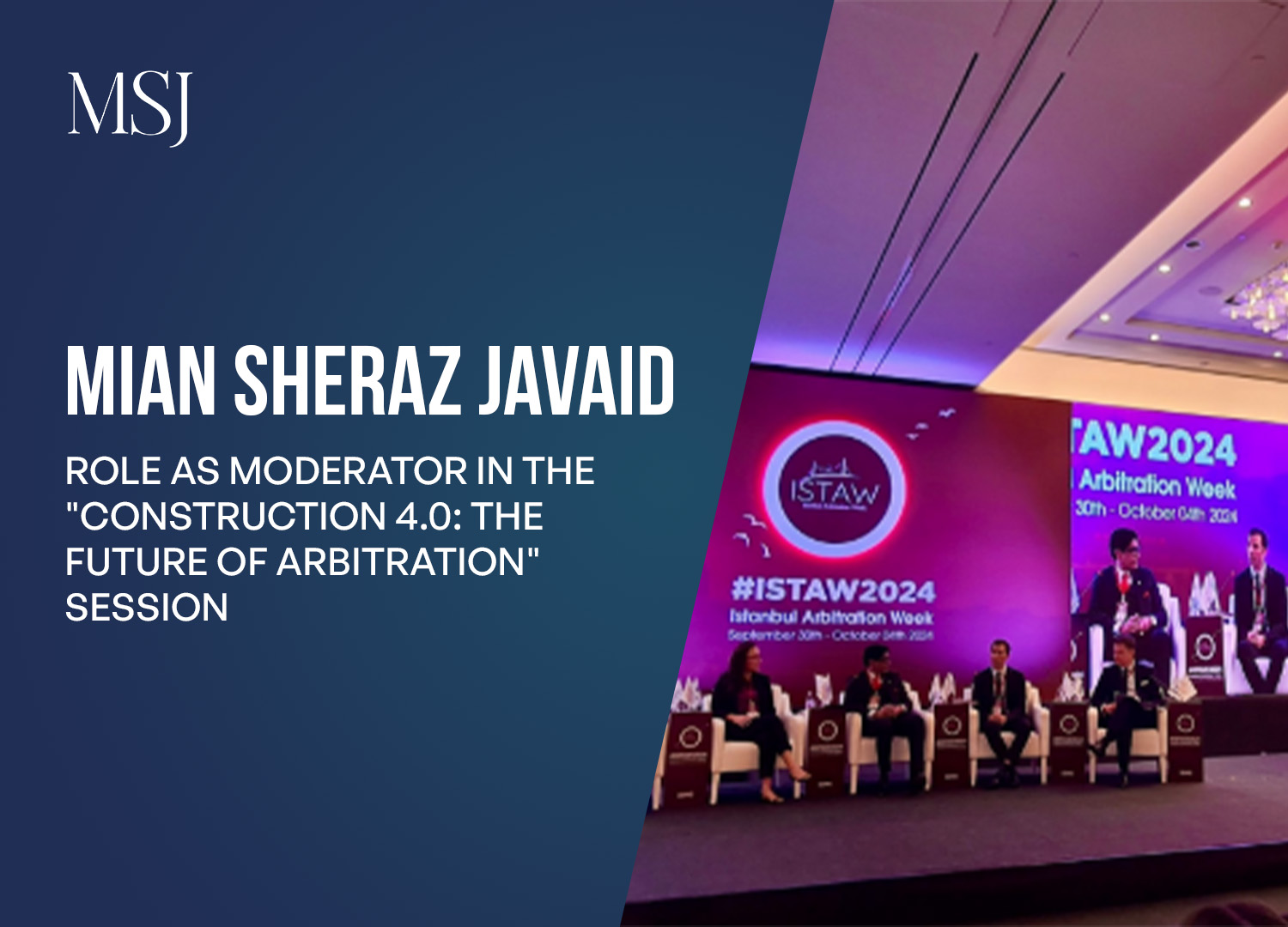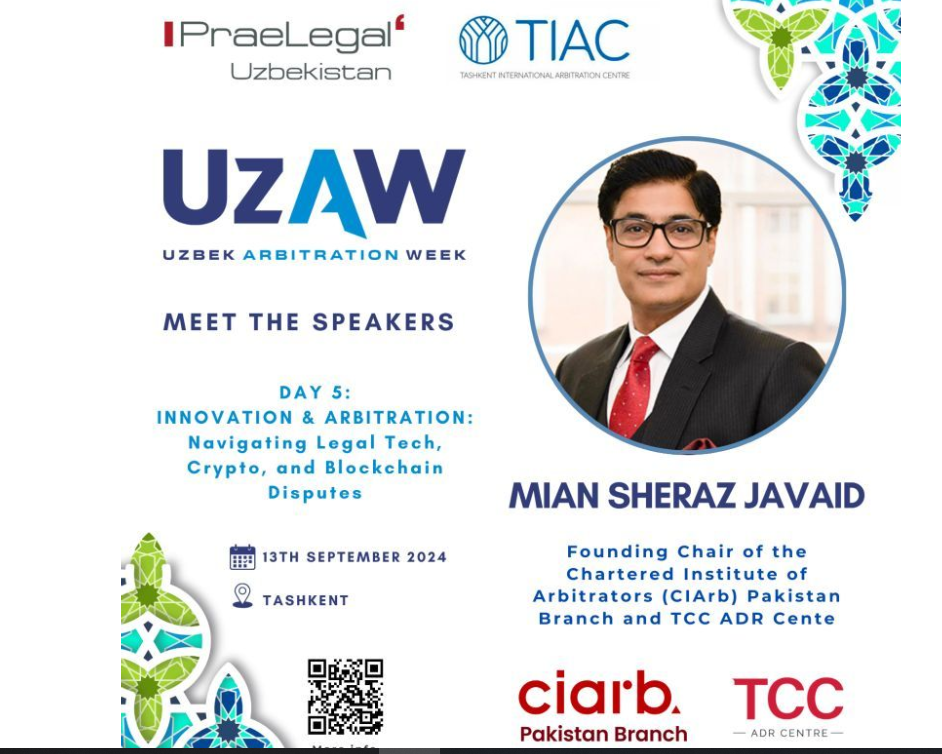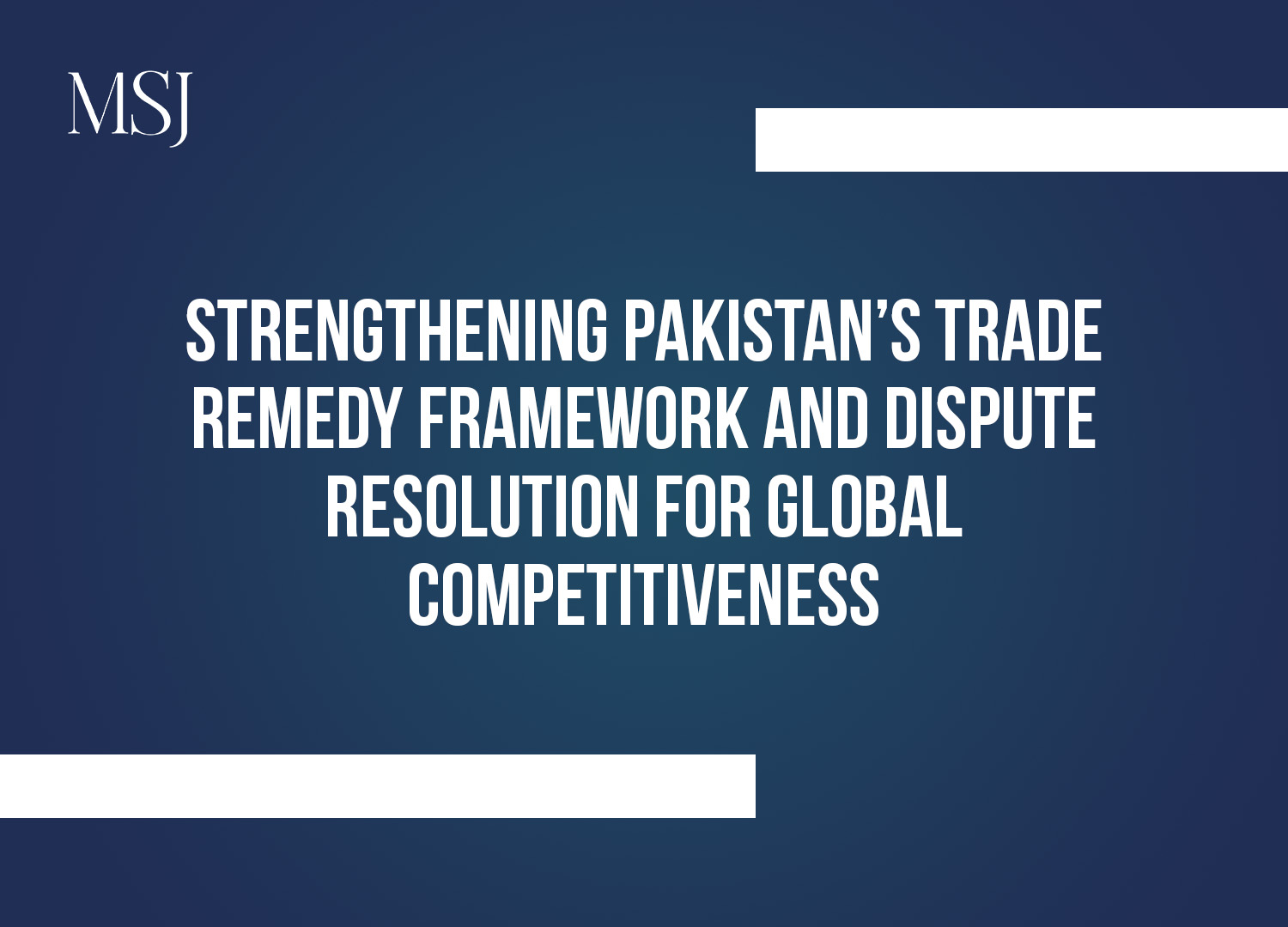Mian Sheraz Javaid Highlights the Role of Neutrals in Pakistan’s Legal System and the Progress of Alternative Dispute Resolution
As of 2021, Pakistan’s legal system was encumbered by a staggering total case docket of 2,159,655 cases, a number that highlighted the urgent need for reforms and more efficient dispute resolution. However, Sheraz points out that recent efforts by the Supreme Court of Pakistan to address this backlog have yielded positive results. The implementation of a case management system and the establishment of benches tailored to specific caseloads have played a role in reducing case pendency. From February 2022 to February 2023, the Supreme Court successfully decided 24,303 cases, a significant improvement in addressing the backlog.
Though commendable, Sheraz argues that the judiciary may further improve the efforts through the introduction of neutrals in this system. "Through the appointment of qualified mediators and arbitrators, Pakistan could provide parties with an alternative dispute resolution mechanism more efficiently and effectively, to lighten the load on traditional court proceedings," he says.
A Milestone in Pakistan’s Dispute Resolution Landscape: Ciarb’s Mediation Training
A notable development in the ongoing efforts to strengthen dispute resolution in Pakistan was the Globally Accredited Mediation training conducted by the Chartered Institute of Arbitrators (Ciarb) Pakistan Branch. Held in collaboration with the Islamabad High Court and delivered at the Federal Judicial Academy in Islamabad, the training marked a significant milestone in the country’s mediation history.
Sheraz points out that this initiative brought a faculty of international repute to Pakistan, providing world-class training to a few of the most talented lawyers and judges. The idea was to develop a local talent pool of qualified practitioners who could be at par with their global counterparts and provide them with the skills and credentials to practice globally. This programme was designed to give credibility to Pakistan's alternate dispute resolution process and ensure that trained mediators could work there, irrespective of the jurisdiction.
The successful completion of this program resulted in the appointment of the first set of qualified neutrals, who were officially listed in the national gazette. These individuals, now officially recognised as mediators, will serve in the Islamabad High Court, further bolstering the country’s mediation infrastructure. Sheraz views this as a significant step toward building a robust and credible roster of qualified mediators, which is essential for the future of Alternative Dispute Resolution (ADR) in Pakistan. The article highlights that the successful completion of this training is just the beginning, as the potential for further enlistments is vast.
Challenges to Overcome in Promoting Mediation
Despite these strides that have revolutionized mediation promotion, Sheraz concludes that many issues still abound. The legal culture of Pakistan remains litigation-prone, and ADR has a lot to battle to gain the center stage. According to Sheraz, this legal culture has often been challenged by some parts of the legal profession, especially on the issue of mediation, out of either a lack of appreciation for how the mediation process is conducted or through concerns regarding the efficacy of mediation or about the impartiality and credibility of the mediators.
Public awareness is another critical challenge. According to Sheraz, most people do not know how mediation can benefit them, for instance, cost and time effectiveness as well as maintaining relationships between the disputing parties. Public enlightenment on the advantages of mediation would play a critical role in the promotion of its use as an alternative to the long and expensive litigation.
Furthermore, establishing a sustainable mediation system in Pakistan requires consistent funding and resource allocation. Given the country’s other pressing needs, this may be a difficult task, but Sheraz emphasises that such investment is crucial to the long-term success of ADR.
The Need for Institutional Support: Establishing ADR Centres
For mediation and other forms of ADR to flourish in Pakistan, Sheraz argues that institutional support is essential. He calls for the establishment of dedicated ADR centres, which would serve as centralized hubs connecting parties with the appropriate neutrals and mediators based on their specific expertise. By creating a streamlined process for the appointment of neutrals, these centres could significantly improve the accessibility and efficiency of ADR mechanisms.
Sheraz also highlights that ADR centres would provide transparency, accountability, and standardisation in the appointment process, helping to build public confidence in the neutrality and impartiality of the mediators. These centres could serve as a key infrastructure to support the growing ADR framework in Pakistan, ensuring that mediators are selected in an organised and transparent manner.
Sheraz further recommends that Pakistani courts should take a more proactive role in promoting ADR by directing cases to these ADR centers. The system could be designed so that the courts automatically refer cases to the ADR centers without any bureaucratic hurdles, which would make the process of dispute resolution much smoother and lighten the burden on the court system.
The Role of Legislation in Strengthening ADR in Pakistan
As Sheraz notes in his article, the role of legislation is paramount in supporting the growth of ADR in Pakistan. A significant piece of legislation in this regard is the Punjab ADR Act 2019, which was amended in 2023 to provide a stronger framework for the implementation of ADR in the country. This legislation is seen as a critical development in ensuring that ADR mechanisms are legally recognised and supported in Pakistan.
Other contributions to the development of ADR in Pakistan are also highlighted by Sheraz, such as that by Ciarb Pakistan Branch and TCC ADR Centre. Most importantly, these organizations offer comprehensive ADR services and appoint qualified mediators, thereby further assisting the growth of the ADR ecosystem in Pakistan.
Looking to the Future: Challenges and Opportunities
Though the road ahead surely has challenges, Sheraz's article looks to a hopeful future in ADR in Pakistan. He accepts the proposition that full integration of mediation and other ADR methods within the country's legal framework would be marked with some uncertainty but has bright hopes for the initiatives underway.
One of the most important steps in this direction is the establishment of ADR Centers and the training of qualified neutrals, as well as the legislative support provided provided by the Punjab ADR Act 2019. Sheraz believes that with time, trained mediators and good advocacy for ADR will work wonders for alleviating Pakistan's legal backlog and improving the efficiency of the judicial system overall.
In short, the article by Sheraz cites both the milestones achieved in progressing mediation into Pakistan and the challenges that remain. In fact, with an expanded pool of trained mediators, the institutional support of ADR centres and the legislation strengthening frameworks, Pakistan has the very real potential of transforming its dispute resolution landscape. In this newly evolving land, the place of neutrals in the legal system will remain a crucial factor in the looming future within the entire system in realizing a much more efficient and cost-effective as well as equitable judicial process.
This article was published in The Nation and can be read here.


